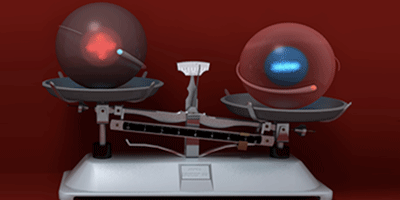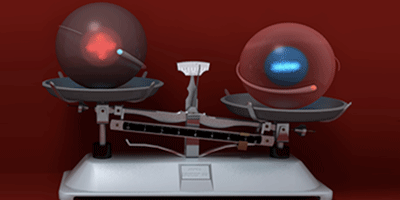Giving Weight to Antimatter
Does antimatter feel the same gravitational pull as ordinary matter? The standard model of particle physics assumes this is the case, but experimental evidence remains hard to gather: measurements are complicated by the fact that antimatter is rare and annihilates when brought into contact with matter. Still, researchers are eager to test this assumption, since the standard model cannot explain the gravitational behavior of of the Universe’s matter nor the abundance of matter vs antimatter. As reported in Physical Review Letters, experts in antihydrogen and atom interferometry are working together to design an interferometer that could measure the free-fall acceleration of any species of atoms, in particular antihydrogen.
The research team, led by Holger Müller at the University of California, Berkeley, has theorized a scheme in which antihydrogen atoms are cooled by lasers and then moved with light into a vertical interferometer cell. Because of the wave nature of the ultracold atoms, antihydrogens behave as matter waves that travel upwards and downwards within the cell and interfere. By counting the number of atoms that leave the cell, the device measures the phase shift between the two interfering paths and thus gravity. Since antihydrogen atoms cannot be produced in large quantities, the setup employs a special trick: it “recycles” the atoms that do not annihilate, sending them multiple times through the interferometer. The scheme could be integrated into the ALPHA antihydrogen trap at CERN and, with current antihydrogen production rates, it would allow the measurement of the gravitational acceleration of antihydrogen with a precision of . Further improvements could potentially drive the precision up to levels comparable to those attained in experiments on ordinary matter. – Matteo Rini





